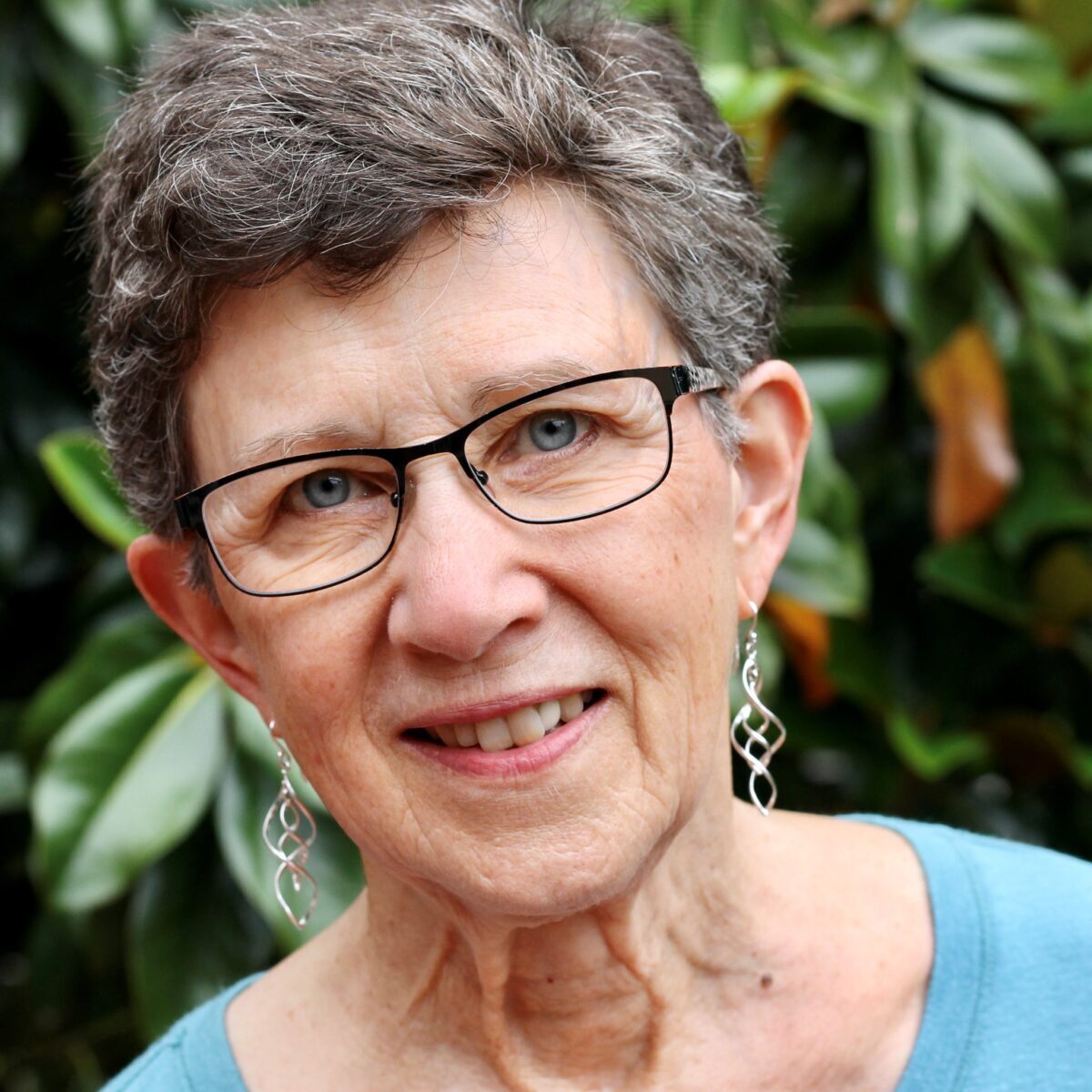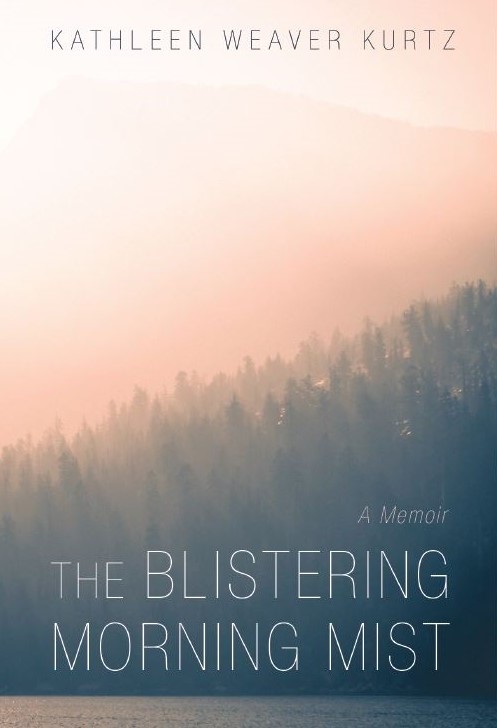At long last, I am introducing to you Kathie Weaver Kurtz who recently released her memoir titled The Blistering Morning Mist. Kathie and I have been in the same writing group for more than two years, and thus we helped one another with honing the writing of our memoirs. Her writing is lyrical and poetic, imaginative and insightful. She has the perspective of having been a counselor and was able to use these skills to shape her reflections of her life into an artful memoir. She has answered the following questions for us as a means of introducing her work.
What compelled you to write your memoir?
Perhaps the question should end after write. I’ve spent most of my life declaring emphatically that I can’t write, that I’m not a writer. But life didn’t accept that answer. As the generation above me began to leave, I found myself holding memories of them, and wanting to curate them as I did their letters and belongings. I wanted, in some way, to preserve the past in which they had played major roles in my life.
Many people write a memoir. What makes yours distinctive?
That question reminds me of a story in which Robert Fulghum asks someone about the meaning of life. The person who answers says that each of us shine the light from a perspective only we have and that constitutes meaning for each of us. My story comes from the perspective that only I have—a Mennonite girl who grew up in the 1950s in an academic community, different from most Mennonite communities of that era. The losses I faced and how I dealt with them, the way I chose to bridge the gap into a much different world, the choices I made about what to keep and what to leave behind of my tradition, the ways I confronted my fears and discovered my strengths are uniquely mine.
As you were writing this book, were there certain memories that were evoked that you hadn’t recalled before, or memories that came into sharper relief?
Yes. As I pondered past events and the feelings that went with them, additional details sometimes came to mind that I had forgotten. Much of writing happens before a word is put on paper. Some of my pondering happened in therapy. Some of it with family members and friends. As I talked with them, they sometimes added details that I had forgotten but came clearly to my mind at their suggestion. One small example—over lunch with some of my first-grade-through-college friends, one of them mentioned our first-grade teacher freshening her lipstick after lunch, and I immediately pictured her at the mirror hanging on the inside of her closet door, outlining her lips with red. I had forgotten that detail until then.
Did the practice of writing change your perspective about certain life experiences?
It is true for all of us, that when we reflect on our past at any given point in life, our perspective is different. Having said that, writing and re-writing a story, and beginning to listen more and more closely to the voice of my internal story-teller helped me to pause, to hover over an event or dynamic, to come back to it repeatedly. This process often nudged my perspective to a different angle. For example, I gained a heightened awareness of the way my early life set me up for later assumptions of powerlessness or lack of agency. I failed in making the world right for my mother, which was an impossible task. In my childhood perception I thought this was my responsibility. I had not articulated this as a goal in childhood or later, but as I reflected on it as I wrote, I could see the effect this had on my life and could trace it back to its unspoken beginnings.
What barrier from the larger world seemed the most imposing or presented the biggest obstacles for your self-development?
Every barrier I can think of stems more from within me than from outside. I wanted to belong, to dress in more interesting ways, to know more about unfamiliar places and people, to carry the worldly-wise sophistication I conjured up for those beyond my world. I carried within me a deep sense that being different was, by definition, being inferior and that I shouldn’t go against the mores of my Mennonite community. This hesitance was my real barrier.
How have you learned to handle working through the kinds of blind spots that we all have about ourselves?
That is a hard question because even to answer it implies I can see my blind spots. I try to listen carefully both to those who know me well, and those who observe me as a stranger, knowing they all see things I don’t see, or don’t want to admit. Blind spots are not necessarily bad. For me, learning to accept other’s recognition of and experience of my strengths has probably been as challenging as hearing about my faults. Taking responsibility for both faults and strengths and recognizing the power they carry for good or ill is the challenge of a lifetime.
Is there an overall message you hope your readers will come away with after having read the book? If so, what?
The message of the final sentence of the book—”there is always more.” In spite of whatever challenge, pain, or struggle comes to us, there is also more—more grace, more vitality, more beauty and goodness, more of whatever we need. To doubt that is to live a timid, constricted life.
What joys has the completion and publication of your story brought into your life?
Connections with others—talking about common experiences and memories. Hearing from others that something in my story was helpful to them. That is, after all, why we tell stories—to make meaning and to make connections, to know we are not alone.

If you have questions for Kathie, you may ask her directly here on this blog, and she will answer them. Your name will be added to a the list for a chance to win in a random drawing for a free copy of her book.
You may buy her book from Amazon or Wipf and Stock.
You may also visit Kathie’s blog, Practice Pages.



A very insightful and interesting interview. I highly recommend the book.
Thank you, Esther.
Thank you for sharing this interview with us. Will be checking out her blog and book